The Trinity False Doctrine
The Trinity False Doctrine
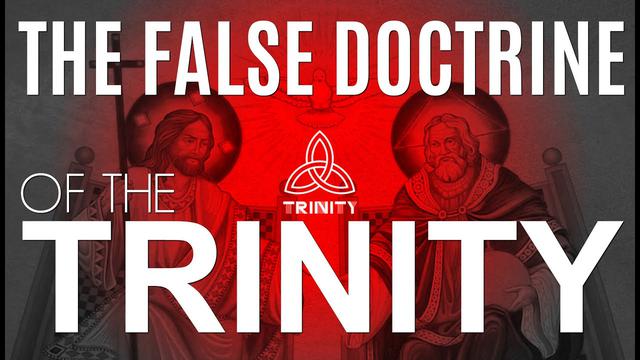
Articles
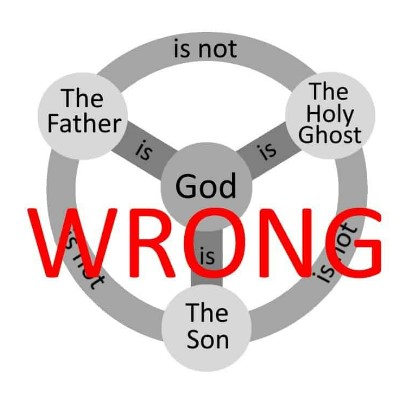
Was Jesus Christ Alive Before His Life on Earth Began? (pdf)
Books / Booklets
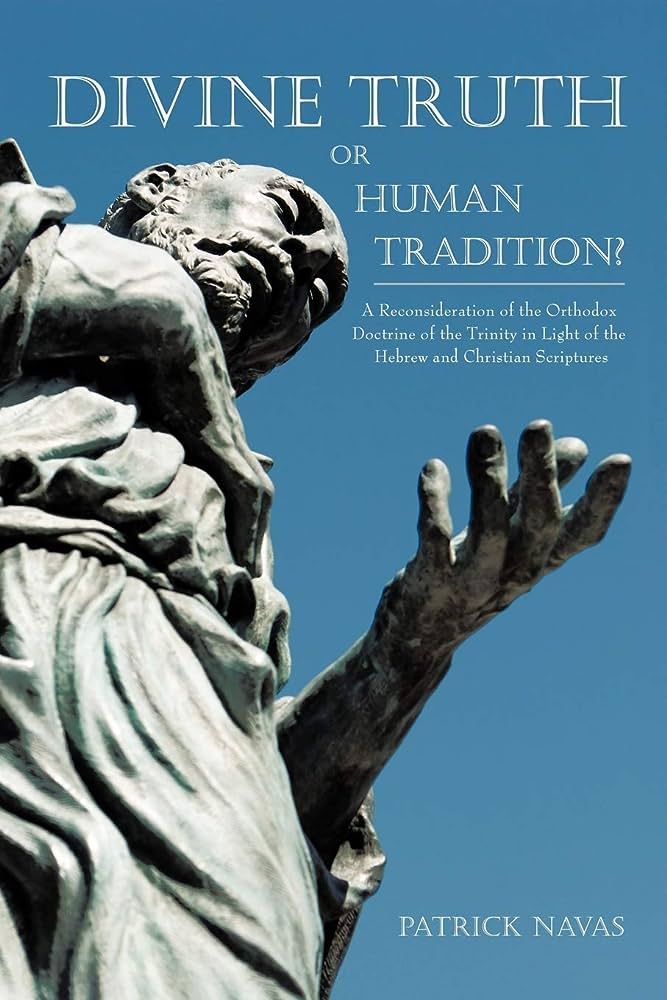
Divine Truth or Human Tradition?
by Patrick Navas (2011)
Since it is not taught by Scripture in a straightforward way, is it possible that the doctrine of the Trinity is not an authentic representation of Gods nature and of the original apostolic faith? Few “evangelical” Christians have been willing to explore this issue in depth. Most are familiar with the arguments commonly advanced to defend the doctrine, but how many are familiar with alternative yet scripturally harmonious ways to understand the classic “proof-texts”?
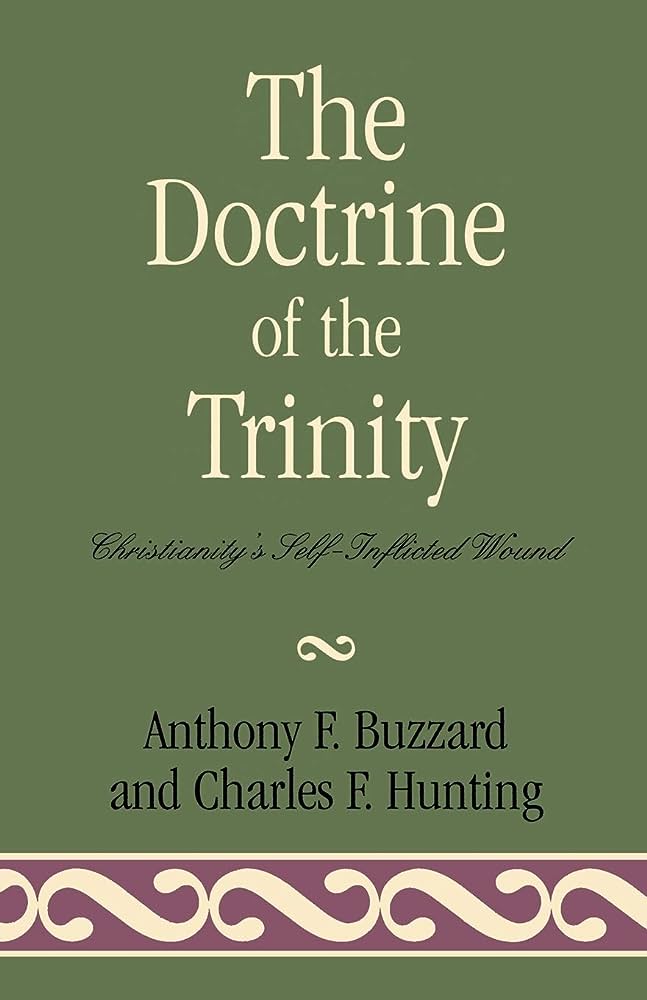
The Doctrine of the Trinity: Christianity’s Self-Inflicted Wound
by Anthony F. Buzzard and Charles F. Hunting (1998)
This important work is a detailed biblical investigation of the relationship of Jesus to the one God of Israel. The authors challenge the notion that biblical monotheism is legitimately represented by a Trinitarian view of God and demonstrate that within the bounds of the canon of Scripture Jesus is confessed as Messiah, Son of God, but not God Himself.

The Doctrine of the Trinity: A Doctrine Not of Divine Origin
by George Stuart Hawthorne (1851)
A work which exposes the unscripturality of the doctrine of the Trinity and shows that Christ and his apostles, and the prophets of old, knew nothing of such a doctrine, and never taught anything but what was most directly — and most emphatically — opposed to such a doctrine. In addition, it will show how the beautiful simplicity, and converting influence, of the gospel of Christ has been marred, and destroyed, by articles of faith, which do dishonor to the truth as it is in Jesus.
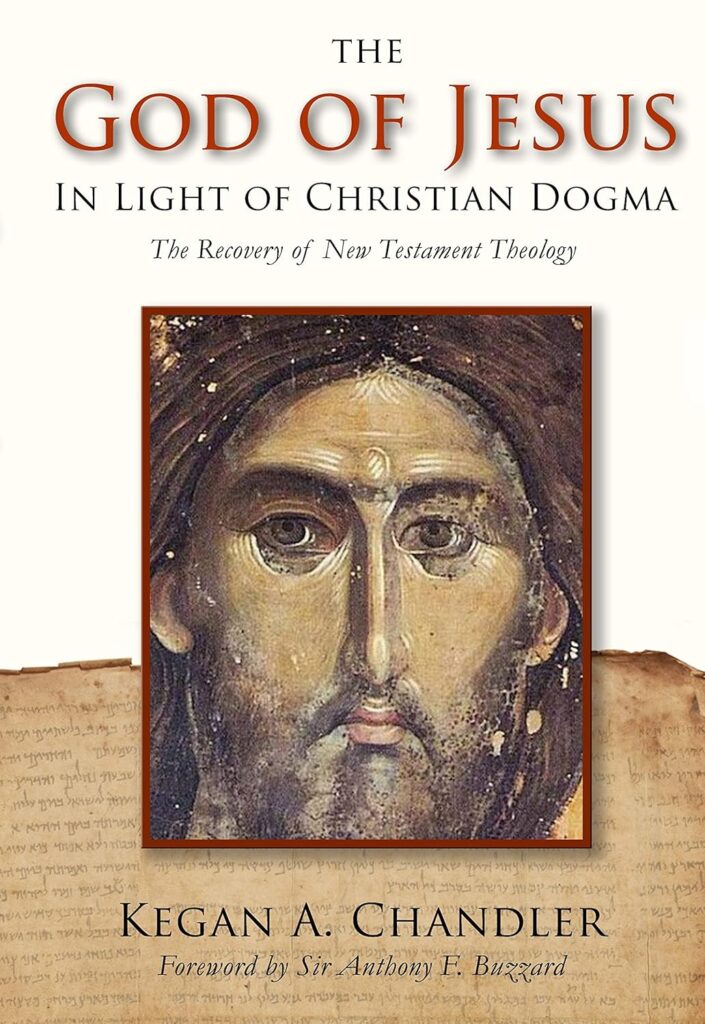
The God of Jesus in Light of Christian Dogma
by Kegan A. Chandler (2016)
Could reacquiring the Jewish worldview of the first century help us to better understand Jesus’ theology in our own time? Could revisiting Church history show us where we went wrong? This book embarks on a dynamic investigation of the developmental history of orthodox theology and its impact on popular interpretations of the New Testament. Writing for both the dedicated Christian student and the interested public, Chandler boldly appeals to both ancient history and modern scholarship to inform us about the origins of our most sacred traditions, and challenges the reader to contrast those ideas with the words of Jesus.
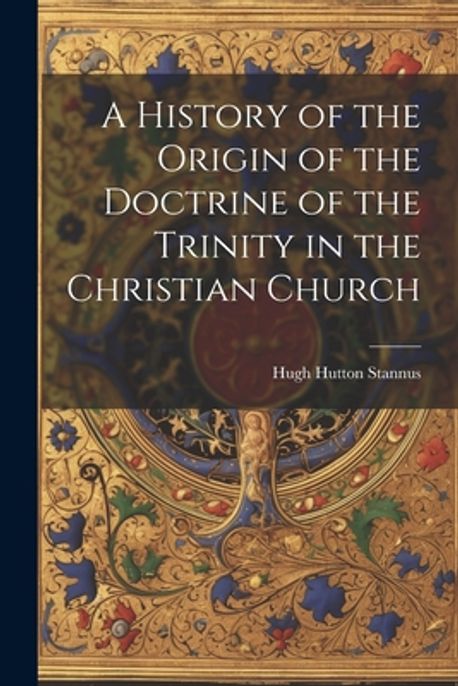
A History of the Origin of the Doctrine of the Trinity in the Christian Church
by Hugh Stannus (1882)
This book examines the biblical and historical evidence to argue that the concept of the Trinity, as it is commonly understood today, is not found in the original teachings of Jesus or the early apostles. The book traces the origins of the Trinity doctrine to pagan influences and philosophical speculations that entered Christianity in the second and third centuries CE and presents evidence from the writings of early Church Fathers and other historical sources to support this claim. By examining the evolution of the Trinity doctrine, this book sheds light on the complex interplay between religious beliefs, cultural influences, and the development of Christian theology. It invites readers to question the traditional understanding of God in Christianity and to consider a more scripturally based, monotheistic view of the divine.
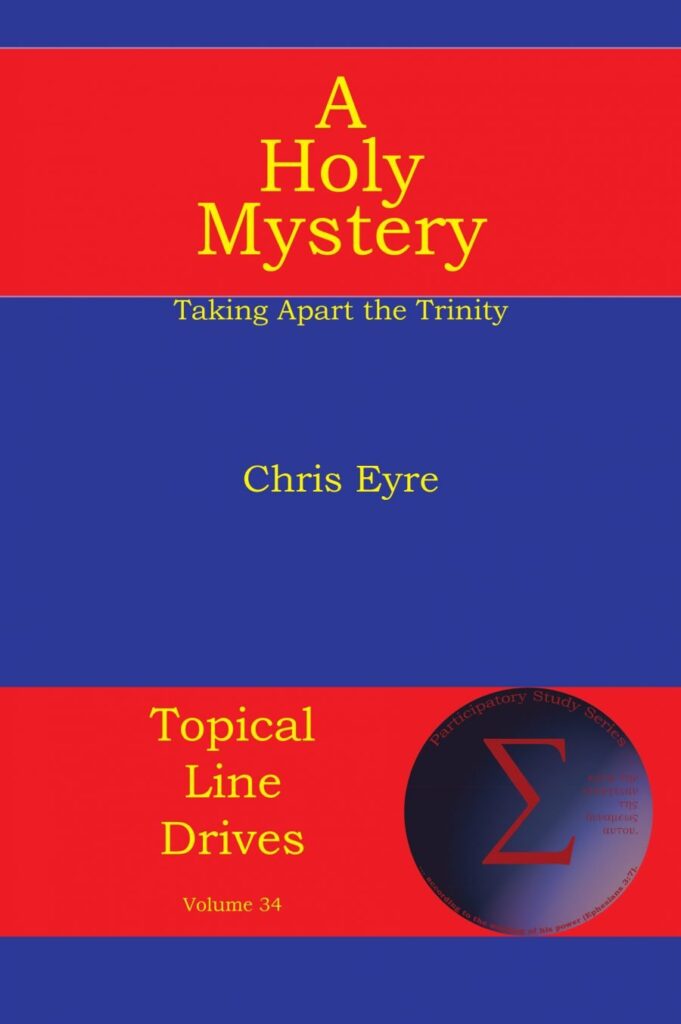
A Holy Mystery: Taking Apart the Trinity
by Chris Eyre (2019)
A pastor says, “If you think you understand the trinity, you’ve probably fallen into heresy.” An expert in biblical studies says, “The trinity is one of the best ways ever invented to say, ‘We don’t have a clue!'” Many people say the trinity is not found in the Bible, so what is it doing as a doctrine? This lively and challenging book asks you to think about the trinity, what it means, how it came to be, and what value it might have in Christian conversation today. If you don’t want to have your thinking challenged, or you’d rather just go on saying, “I believe in the trinity,” without knowing what you’re saying, then definitely stay away from this book!

Jesus Was Not a Trinitarian: A Call to Return to the Creed of Jesus
by Anthony Buzzard (2007)
This book is a sequel to an earlier work, The Doctrine of the Trinity: Christianity’s Self-Inflicted Wound, co-authored with Charles Hunting in 1998. In this book, the author returns to the topic with renewed vigor and greater insight, the fruit of much study and debates with opponents around the country. It is an invaluable resource for those who have escaped the trap of Trinitarianism with its concomitant doctrines of the preexistence of Christ, the “eternal generation” of the Son, the Incarnation and the hypostatic union. This is a cry for a return to the teaching of Jesus.
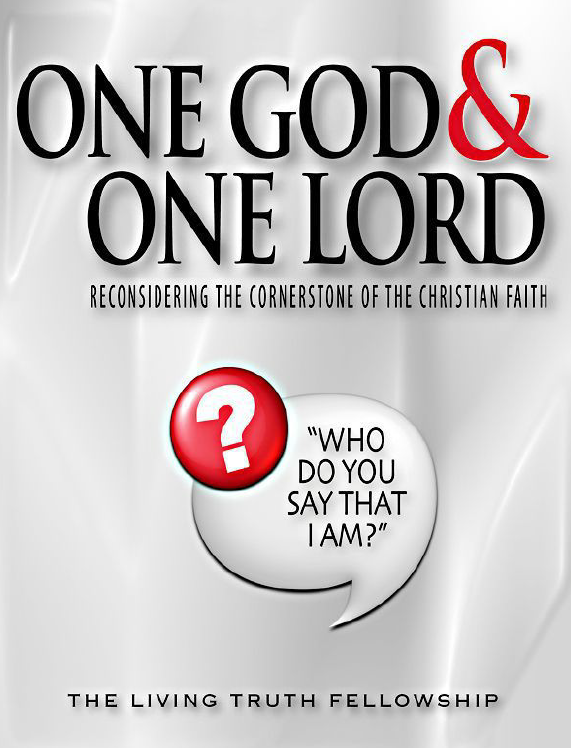
One God & One Lord: Reconsidering the Cornerstone of the Christian Faith
by The Living Truth Fellowship (2011)
Building an impressive and compelling case for the unity of the biblical testimony concerning the true humanity of Jesus, the authors seek a view of Christ that allows for a total appreciation of his steadfast obedience to God in the face of temptation, suffering and even a humiliating death. This book shows how the traditional view of Jesus Christ actually demeans both his accomplishments and his heroism by attributing to him “intrinsic deity” that essentially eliminates the possibility of either authentic temptation or failure.
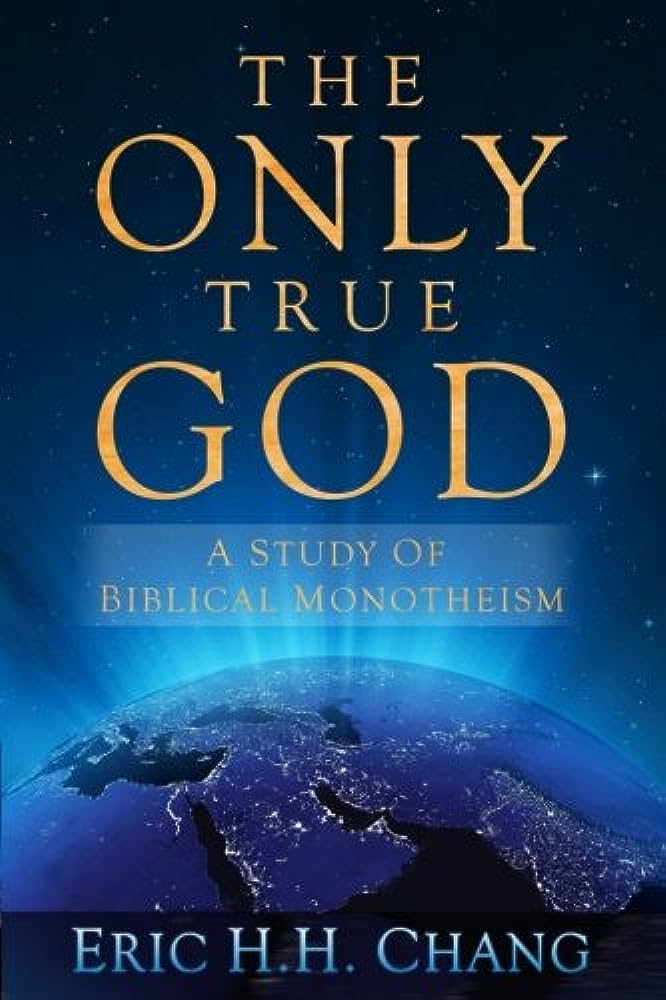
The Only True God: A Study of Biblical Monotheism
by Eric H.H. Chang (2013)
The faith of the Bible is not trinitarian but unyieldingly monotheistic. God’s message to humankind is a call to faith in Yahweh, the one and only God of Israel. In this study of Biblical monotheism and of trinitarianism’s claims to monotheism, we pay particular attention to the Biblical texts, principally John 1:1-18, which are typically used to underpin trinitarian doctrine.
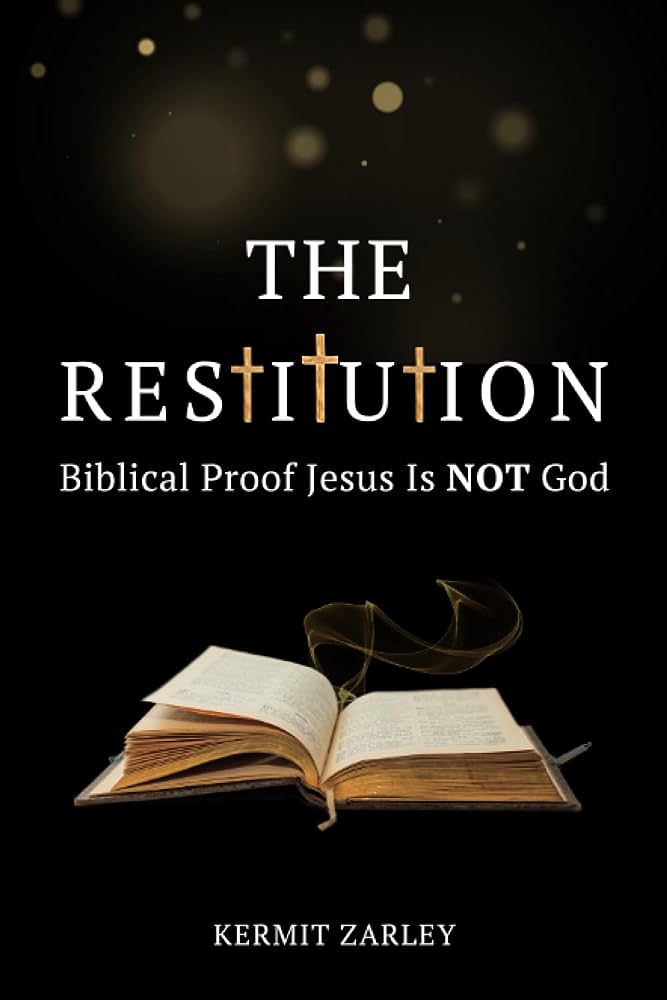
The Restitution of Jesus Christ
by Kermit Zarley aka Servetus the Evangelical (2008)
As a former Trinitarian for 22 years, Kermit Zarley seeks to restore the true identity of Jesus of Nazareth. Solely on the basis of the Bible, and a fairly conservative view of its inspiration, this book challenges the traditional church dogma that Jesus is God. It asserts that the God of creation, the God of the Bible, is not triune but a single Person whom Jesus called “Father.”